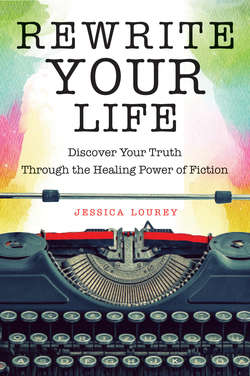Читать книгу Rewrite Your Life - Jessica Lourey - Страница 13
На сайте Литреса книга снята с продажи.
HOW NARRATIVE THERAPY WORKS
ОглавлениеHundreds of studies have since been conducted to figure out how writing heals, because it does mend and transform. Social scientists have established that expressive writing decreases anxiety and depression; reduces pain and complex premenstrual symptoms; improves the body's immune functions including boosting antibody production; enhances working memory, physical performance, and social relationships; reduces illness-related doctor's visits; improves the physical and mental states of Alzheimer patients' caregivers, cancer patients, and people with HIV; reduces the symptoms of asthma, rheumatoid arthritis, and eating disorders; and positively addresses a host of PTSD symptoms. In fact, a recent pilot study of eleven veterans diagnosed with PTSD found that after a dozen sessions of narrative therapy, not only did over half of the veterans experience a clinically significant reduction of PTSD symptoms, but a quarter of them no longer met the criteria for PTSD.
That's just a start.
Writing makes everything better.
It's tied to how our brains are wired. We are creatures of habit, evolved animals who perceive stimuli, run it through our limbic system, attach significance to it, and then respond.
Stimulus—significance—response.
Here's an example. Let's say you're stuck in traffic. The traffic jam is a stimulus. It's the job of your amygdala, an almond-shaped glob of neurons housed deep in your brain, to process stimuli, organizing events into emotional memories. Your amygdala codes this particular experience with frustration, which is the significance you attach to it. You respond to this emotion by swearing and mentally squishing the heads of the people in the cars around you. This swearing and mental-head-squishing response becomes your established action pattern any time you perceive a stimulus that your amygdala has classified as frustrating.
Stimulus—significance—response.
Traffic jam—frustration—mental head squishing.
But you don't have to remain a slave to this feedback loop. Thanks to your evolved prefrontal cortex, the big chunk of brain directly behind your forehead that governs executive reasoning, you have the ability to break free of this stimulus-significance-response pattern. (Pavlov's dogs were not so lucky.) Still, as anyone who's tried to quit smoking knows, being aware of the best path and choosing it are two different beasts. And the more intense the emotion, the less blood flow to the prefrontal lobe, therefore the weaker our ability to make rational choices.
To add to the problem, it turns out your neural pathways cement themselves in the case of traumatic events. The result is that some people respond to reminders of stimuli, a condition known as post-traumatic stress disorder (PTSD). This trauma-induced reprogramming of the brain explains why it's impossible for many veterans to enjoy Fourth of July fireworks, for example. Their limbic system, the creamy nougat center of the human brain where our memories and emotional lives are housed, has coded “explosion” with “danger,” and so when these veterans hear fireworks, they react as they would, as any of us would, to a bomb going off nearby.
From the outside, this condition may appear simple to correct. They're fireworks, not bombs, after all. But neuroimaging proves that when people are merely reminded of trauma, blood flow ramps up in the brain structures associated with extreme emotions and decreases in the areas associated with communication. The sufferer essentially becomes trapped in their own fear, at the mercy of neural patterns. The good news is that writing therapy, along with other mindfulness practices, including dialectical behavior therapy, art therapy, yoga, Qigong, tai chi, Alexander Technique, and meditation, allows you to reprogram your brain.
You can literally change your mind.
Drawing on the wide body of research in this area, the three most promising explanations as to how this works are habituation, catharsis, and inhibition-confrontation. I explain all three below.
